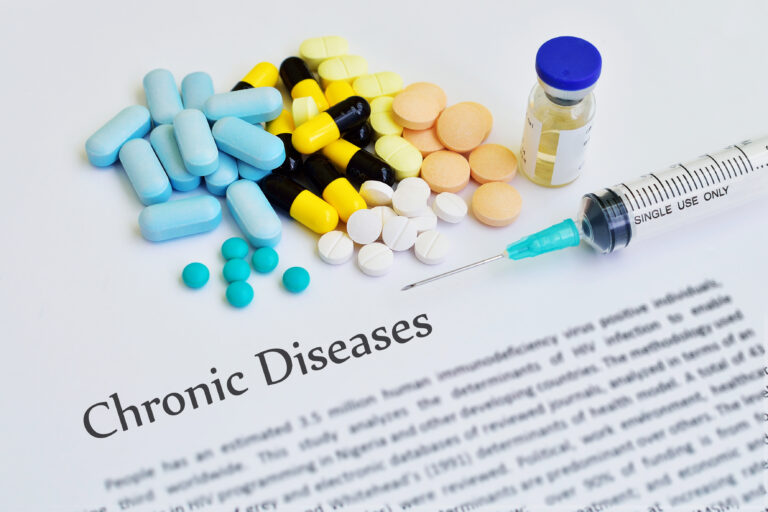by Donna Jonda
Bermuda, often lauded for its beauty and vibrancy, has an emerging health crisis. Chronic diseases are increasing, blemishing our island’s paradise image. The fast pace of contemporary life, technological convenience, and urban stressors have all contributed to lifestyle transformations.
Contrasting with the activity and homemade meals of previous generations, today’s Bermuda sees more desk-bound occupations and an increased consumption of processed foods. Such lifestyle changes, along with potential genetic predispositions, have pushed these chronic conditions into the limelight as public health emergencies.
THE STRUGGLE WITH DIABETES IN BERMUDA
Bermuda reflects a global epidemic in diabetes, with rates much higher than other nations. The Bermuda Diabetes Association cites the condition’s prevalence among adults as an acute concern, taxing both individuals and the health care system. Sara Bosch de Noya, a diabetes educator, stresses the gravity of this epidemic.
EDUCATION AND PREVENTION: KEY TACTICS IN THE DIABETES BATTLE
The Bermuda Diabetes Association’s focus on regular screenings and educational outreach as a key defences against diabetes. Early detection through health check-ups can lead to timely intervention, potentially reversing the course of Type 2 diabetes.
However, Bosch de Noya states that understanding the distinction between Type 1 and Type 2 diabetes is critical. Public misunderstandings blur the reality that while both require management, they are very different: Type 1 is an autoimmune condition necessitating lifetime insulin use, while Type 2 often correlates with one’s lifestyle.
Bermuda’s traditional cuisine and passive leisure habits play a role in exacerbating the diabetes problem, prompting a collective call to adopt more active routines. Regular exercise is advocated not merely for enjoyment but as a vital preventative measure.
THE INTERSECTION OF DIABETES AND HEART DISEASE
Diabetes often acts as a precursor to heart disease. As individuals and health professionals grapple with diabetes management, they must also be vigilant about the associated risk of cardiovascular conditions. This connection underscores the need for a comprehensive approach to tackle the spread of diabetes and its associated health risks.
Through education and prevention, Bermuda is taking on diabetes with a united front, and in doing so, it also aims to curtail the advancement of related ailments like heart disease. Bosch de Noya’s dedication to education epitomizes the island’s proactive stance: informed individuals can make changes that may not only improve, but also save, lives.
BERMUDA’S HEART DISEASE CHALLENGE: A CRITICAL HEALTH ALERT
The “Steps to a Well Bermuda” study highlights the prevalence of heart disease in Bermuda. The research shows that heart disease is a leading cause of death. Alarmingly, Bermuda grapples with elevated incidences of hypertension, obesity, and diabetes—conditions that converge to heighten the risk of cardiac illnesses.
Our everyday lifestyle choices are significant contributors to the heart disease epidemic. Diets rich in sodium and trans fats, a love for processed foods, and minimal physical activity are rampant.
In response to this threat, there are intensifying prevention efforts, with a strong emphasis on lifestyle and dietary adjustments to mitigate heart disease risks. Health campaigns are vigorously promoting a nutritious diet encompassing fruits, vegetables, and whole grains and advocating reduced consumption of red meat and high-fat products. Regular physical activity is a vital preventative strategy, encouraging individuals to integrate exercise into their daily lives.
COMBATING CHRONIC PAIN: BERMUDA’S INTEGRATED HEALTH INITIATIVE
Another chronic diseases is chronic pain. Chronic pain is deeply entwined with the rise of other serious chronic conditions in Bermuda. Not only does it compromise the quality of life for sufferers, but it also poses a significant hurdle in the efficient management of healthcare. Recognizing the gravity of this issue, Dr Annie Pinto, from the Bermuda Pain Relief Center, provides a wide range of treatment options.
Pinto recognizes that chronic pain must be confronted with an array of comprehensive care strategies. Beyond physical treatment, Pinto places strong emphasis on education as a vital tool in managing chronic pain. Educational initiatives are designed to raise public awareness about the seriousness of pain as a health condition and to promote available management resources.
TOWARDS A HEALTHIER BERMUDA: A CALL TO ACTION AND A PROMISE FOR CHANGE
As Bermuda confronts the growing challenge of chronic diseases, the need for innovative strategies is more pressing than ever. Healthcare providers are empowered to incorporate new and more effective treatments, offering hope for the broader community. This progress is not merely for the treatment of conditions like diabetes, heart disease, and chronic pain but also serves as a testament to the power of a united, health-conscious society.
The emphasis on prevention echoes through the island’s health campaigns. Bermuda’s healthcare initiatives have been promoting active living and nutritional wisdom, making regular exercise, balanced diets, and health screenings not just recommendations but facets of daily life. Such measures are foundational to curtailing the onset and progression of chronic ailments, showing that a community in harmony with its health can significantly diminish the weight of these diseases.
And while we have repeatedly stated that diet and exercise are critical, we cannot ignore the fact that engagement and education are pivotal. The “Live Your Best Life” campaign by the Bermuda Diabetes Association exemplifies this, with their unwavering support of those with diabetes. Equally, the Bermuda Pain Relief Center’s endorsement of the documentary “This Might Hurt” provides insight and promotes understanding of the innovative pain reprocessing therapy, offering new hope for those afflicted by chronic pain. You can even watch it for free if you contact their office.
In the spirit of these efforts, Bermudians are urged to become proactive agents in their own well-being. With resources like “This Might Hurt” available, individuals are learning that management of pain is possible, and that a proactive stance can materially improve one’s quality of life.
While our health landscape is at a critical crossroads, the commitment to combat chronic diseases with education, prevention, and advanced care reflects a shift towards a preventative rather than a reactionary healthcare solution. This strategy establishes a solid base for a resilient and healthy Bermuda, which is essential to longevity and vitality.

